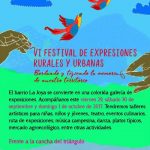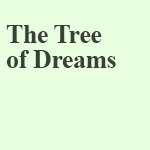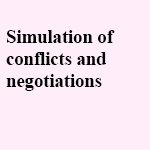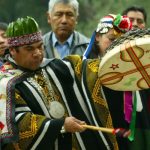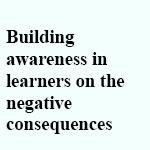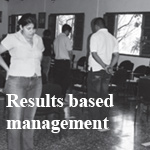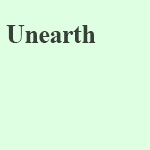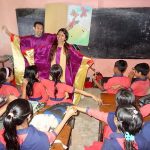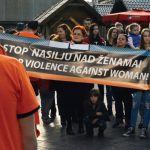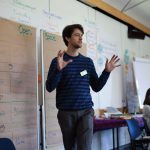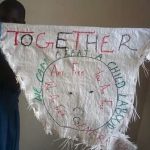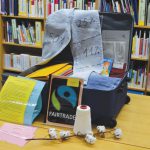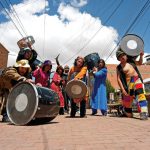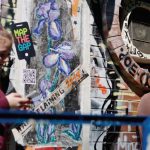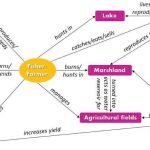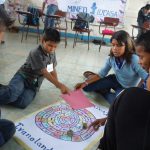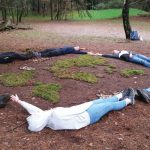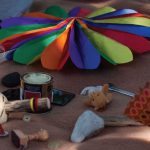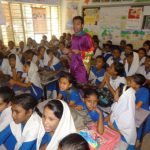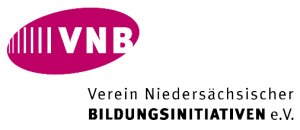Methods
The methods published on this page were developed by Learn2Change partners and members.
The collection is not fully comprehensive, but is considered relevant and useful for the members of the Learn2Change–Global Network of Educational Activists. These are tools to develop the necessary awareness and understanding of global contexts, to encourage and empower learners of all ages from every society to play an active role for an ecologically sound and globally just transformation.
Waste management – recycling and upcycling
Green Glass Green has conducted various kinds of educational activities to raise glass recycling awareness. The activities are talks, street information/game booths, eco-brick factory visits (waste glass recycling factory), storytelling/upcycling workshops, glass collection exposure, glass spotting field trips etc. Below are three methods used often to maximise glass recycling awareness.
April Lai, Hongkong
Download (0,9 MB)
The Rural-Urban Dialogue Festival: Community initiatives based on Popular Education and Intercultural Dialogue
The festival has been held in the urban neighbourhood of La Joya of Bucaramanga, and indeed this is one major achievement: the urban community has taken on a leading role as hosts of the different activities and the rural–urban dialogue process. The festival includes a diversity of events: theatre, music, dance, exhibitions, conferences, panel discussions, video forums, seed exhibits and traditional food banquet, popular food and craft market, as well as artistic events, parades and workshops for children.
Claudia Gimena Roa Avendano, Colombia
Download (1,5 MB)
The Tree of Dreams – A method for environmental education in schools
The local Agenda 21 proposed this methodology aimed at the encouragement of autonomy and participation and at supporting collective and individual empowerment of subjects. It has the objective of promoting the coordinating between Governments, civil society and the private sector to assume responsibilities in order to guarantee social rights and the quality of life in the country and worldwide. The actions are developed from micro to macro, building great world transformation from small local actions.
Gaia Sanvicente Traverso, Brasil
Download (0,1 MB)
Simulation of conflicts and negotiations
Participants slip into the role assigned and begin to negotiate with the objective of solving problems. The outcome of the negotiation is not predictable. Everything depends on the interaction between actors and the general dynamics of the simulation.
Hamza Ghedamsi, Tunisia
Download (0,15 MB)
Advancing the quality of life of Mapuche children in rural contexts: the main challenges and needs
Audiovisual media can be used—such as headsets, microphones, voice recorders, cameras—power-point presentations with interesting, relevant and illustrative content corresponding to each level. By registering voice (audio and video), each measurement and counting of words read in a minute can be reviewed by the student or participant. Registration, finding errors and appreciating the performance in terms of reading fluency is assessed.
Jorge Huichalaf Diaz, Chile
Download (0,1 MB)
Building awareness in learners on the negative consequences of bad human practices
Raising awareness in learners on the negative consequences of bad human practices on their own lives and other peoples’ lives.
MacLee Louis Zulu, Malawi
Download (0,1 MB)
Results based management: Pathway to vision … a sensitive journey
This methodological tool is part of the Box of Systemic Tools 4.0 with the objective to “tropicalize”, systematize and spread the systemic approach in the Latin American context in an interactive way.
Rita Muckenhirn, Nicaragua
Download (2,3 MB)
Unearth – Using crossword puzzles for English lessons with sustainable contents
A word search or crossword puzzle is used to introduce the terms to the participants; depending on the age group. Distribute the photocopied puzzle to the participants and set a time by when they should finish the activity. 10 minutes is a good enough time, depending on the age of the participants.
Ruby Hembrom, India
Download (0,4 MB)
Theatre in Education: a way of generating people’s empowerment
Theatre-In-Education has long been used as an exploratory tool in development. It has also accounted for a means of moral education and socialization, which is well rationalized by all levels of the young and adults. It is a globally recognized process of enhancing the knowledge and information of people through a composite learning process. Hence this process could be a means of education for common people as it instills trust and confidence instead of spreading fear and uneasiness.
Sisir Ranjan Dutta, Bangladesh
Download (0,1 MB)
temperaTOUR: An effective method to teach youth their own connection to the topic of Global Warming
The name of the activity explains the ethos of the method–a learning on the move. Tempera: Because it is about the rising temperature in the world. TOUR: Because the workshop does not take place in a classroom, but in the city where we walk from location to location during the 90 minutes of the workshop.
Achim Riemann, Germany
Download in English (3 MB) Download auf Deutsch
What is this thing called gender?
A method from the Program Y (YOUTH) – Innovative
Approaches in Gender-based violence (GBV) Prevention and Healthy Lifestyle Promotion for Young Men and Women
This activity is conducted in order to understand the differences between sex and gender and reflect on how gender norms influence the lives and relationships of women and men.
Aleksandar Slijepčevič, Bosnia and Herzegovina
Download in English (2 MB) Download auf Deutsch
Personal Storytelling
The method explores the power of stories and storytelling is as a tool for change. Stories are the way we construct coherence of our experiences and create meaning for our lives – individually and collectively, stories shape our actions as individuals and as groups. Stories are a powerful leverage point for change because we can become aware of them and work to reshape them – again both individually and collectively.
Benjamin Kafka, Germany
Download in English (1 MB) Download auf Deutsch
The Power of Expression
SCREAM is the acronym for Supporting Children’s Rights through Education Art and Media. The method is built on the principle that promotes creativity of children as a methodology that puts into consideration the creativity of the children and the power of music as a mode of expression.
Nsubuga Geofrey & Namirembe Molly, Uganda
Download in English (1 MB) Download auf Deutsch
Global Learning out of a Suitcase
Thematic suitcases on different topics filled with multi-sensual educative materials allow tackling complex issues of global interdependencies on a low-threshold level. Complemented by teaching suggestions the suitcases provide multipliers that are not familiar with the topic with a starter kit on global learning / education for sustainable development.
Gertraud Gauer-Sü, Germany
Download in English (2 MB) Download auf Deutsch
The Decolonization of the body: Throne Theater as a Method
This method of exploring ways to decolonize the body is a task of understanding why we’re inhibited and how to free ourselves becoming powerful bodies with many skills.
Iván Nogales, El Alto, Bolivia (Translation: Katherine Arp)
Download in English (4 MB) Download auf Deutsch
Civic Education with the Smartphone:
Discovering places of diversity and exclusion with the app map the gap
The project map the gap uses an app, to create an activity similar to an interactive paper chase to discover places of diversity and of marginalization.
Katherine Arp, Germany
Download in English (2 MB) Download auf Deutsch
A role-playing game to learn and exchange about real-life issues
Players need rice and fish to feed their family; they can do rice farming and fishing, use fertilizer, and transform natural marshes to farmland. However, the marshes are crucial as wildlife habitat, for fish reproduction, and as water reservoir, impacting also rice harvest. During the course of the game, players can play through different management rules, and learn about ecosystem links.
Lena M. Reibelt, Natasha Stoudmann, Patrick O. Waeber, Germany
Download in English (2 MB) Download auf Deutsch
Puentes Educativos – Educational bridges
A strategy which aims at giving children who are excluded from the educational system and exposed to the threat of child labor during the 3-month-period of coffee harvest (October to March), access to education so that they can continue to study and thus move on to the subsequent scholar level/class/grade in regular school.
Lesbia Karina Gadea Salguera, Nicaragua
Download in English (2 MB) Download auf Deutsch
Happiness—A subject for learning!
This activity offers a guided expedition to discover our concepts and approaches to ‘Happiness’ through opening and reflecting various perspectives. It relates personal needs and choices to those of the group, natural environment, national societies and to the sustainable development of our planet earth. It fosters competencies of communication, expression, team cooperation and self-efficacy.
Sabine Meyer, Germany
Download in English (2 MB) Download auf Deutsch
Transformative Poetry – Creative Writeshop
This is a method to prove that everybody can be a poet and that poetry has an empowering and transformative power! After some techniques of venting body and mind, a collective brainstorming around a chosen theme provides the basis for composing individual texts (stories, poems) and possibly drawings. The results shared within the group often reveal unexpected insights into both the author and the topic.
Timo Holthoff, Germany
Download in English (1 MB) Download auf Deutsch
Theatre In Education: Bangladesh Institute of Theatre Arts – A testimony of a methodology
TIE is a participatory method, including interactive and performative moments and integrating cultural methods into school- and folk-education. The TIE content might come from learners, the school curricula or extracurricular subject matters. The content could include local and global issues like environment, climate change, education, science, human rights and child marriage etc.
Sisir Dutta, Bangladesh
Download in English (1 MB) Download auf Deutsch

